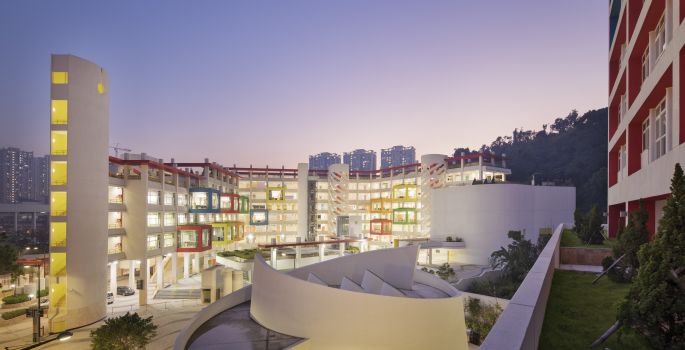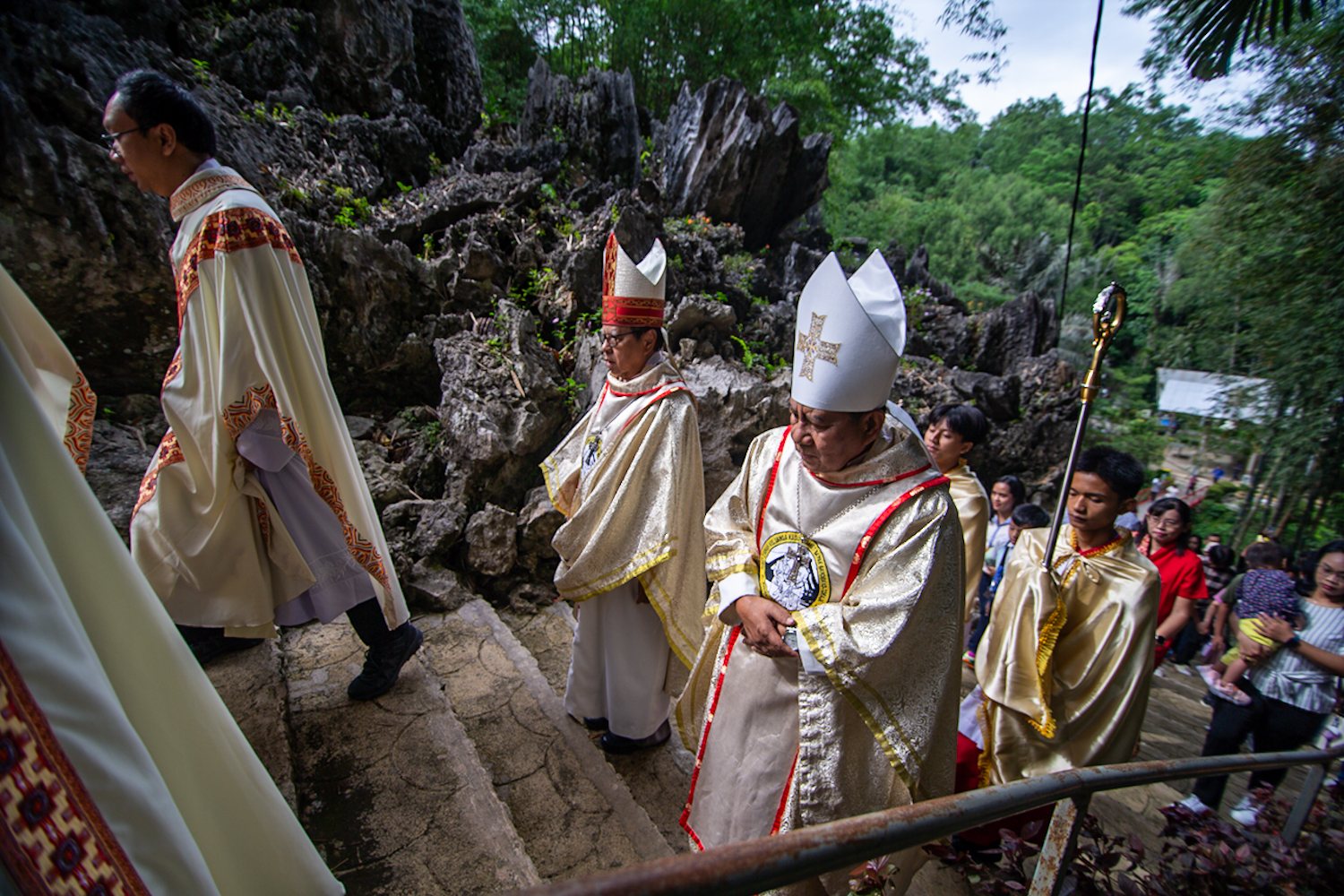Marco Carvalho
What does the election to the Executive Secretariat of the Association of Southeast and East Asian Catholic Colleges and Universities mean for the University of Saint Joseph?
Álvaro Barbosa: The Association of Southeast and East Asian Catholic Colleges and Universities (ASEACCU) is, so to speak, the arm of the International Federation of Catholic Universities (IFCU) in Asia. Therefore, it congregates the generality of the Catholic colleges and universities, not only from Southeast Asia and East Asia, but also from Australia and Japan. It is an association that brings together universities that share Catholic values and where those universities can work together in strategic partnerships; exchanging ideas, students, projects and staff. This association is part of the international network of Catholic universities. We should keep in mind that the group of Catholic universities worldwide is the largest network of universities on the planet. It is an extremely important association, with a huge impact. As the Asian arm of that network, ASEACCU is a regional association, but also a very relevant player in the International Federation. The University of Saint Joseph (USJ) has been an active member of this association for quite a few years already and, now, we are taking on an even more active role. We are members of the Association’s Board of Directors, and in the last few years, we have collaborated on several projects: we took on the responsibility to write ASEACCU’s newsletter and USJ was also part of the organizing committee of the general assembly that was recently held in Cambodia. We worked very closely with our colleagues both in the Philippines and Cambodia to organize this conference in Phnom Penh. There are a certain number of universities who in the past have taken on the responsibility to serve as the Executive Secretariat of the Association of Southeast and East Asian Catholic Colleges and Universities. The last of these was the University of Santo Tomás, the largest Catholic university in the Philippines. The University of Santo Tomás concluded, in August’s general assembly, two consecutive three-year terms. Our partners in the association were kind enough to realize that our university would be in a good position to call upon itself the same responsibility during the next three-year term. We now have free reign to manage the association. We will be the de facto leaders of this Asian association during this three-year term.
We saw our partners in the association unanimously place their trust in us during the general assembly that took place in Cambodia. We have always had a good working relationship with them, and they consider it opportune that this honor was given to China, given that the University of Saint Joseph is the only Catholic university that represents China. We are now going to exercise this leadership position, a challenge which is very important for the University of Saint Joseph because it will help us to position ourselves in our natural network at an international level, which is the Catholic universities network. It will also oblige us to take on a leadership position in a group of close to one hundred regional universities. After Macau overcomes COVID, these new responsibilities will also force us to reposition our strategy in terms of internationalization. This stance has been, somewhat, dormant during the last two years. As we know, over the last two years, Macau and China have looked inward almost exclusively. We remain closed to the rest of the world, and we are essentially focused on Macau and China. This new role is also an opportunity for the University of Saint Joseph to reposition itself internationally. We will have to learn how to manage a series of processes, but we believe the Executive Secretariat of ASEACCU to be a great opportunity for Macau, for the University of Saint Joseph and for the international network of Catholic Universities, which is a network with a great impact.
You were mentioning the need for USJ to reposition itself internationally. What sort of impact could this new leadership role have on the university’s image among its Asian peers?
Álvaro Barbosa: There is one aspect that it is, perhaps, worth noting. In some Southeast Asian countries, Catholic universities are only now starting to make an appearance. This is exactly the case in Cambodia, where the Saint Paul Institute is the only Catholic university institute operating, and also in East Timor, where the creation of a new Catholic university was recently announced. If we bear in mind that the University of Saint Joseph is also an institution with a recent history – the only Catholic university in a country the size of China – and, therefore, has gone through this process of development, of creating a Catholic university in a context where there is no such precedent, I think that, in terms of support, our experience can be useful to these emerging superior education institutions. In some Southeast Asian countries, namely in Vietnam, there are still no Catholic universities whatsoever. In others – such as Indonesia, Thailand and, of course, in the Philippines – there are several. The fact that it will be the University of Saint Joseph that will exercise a leadership position in ASEACCU in the next few years will be extremely important, particularly to these new universities, because we have a different sensitivity towards the development of a Catholic university from scratch, in a context where such institutions are absent. First and foremost, we need to establish a trustful relationship with the local entities and community, but with our experience and knowledge, I think we are in a position where we can give some support to these universities. So, from that point of view, I think it’s extremely important for us to take on this role. It is also a way of contributing to that international network of Catholic universities once we have a unique experience developing this very same community in Macau.
What other benefits will the University of Saint Joseph extract from these newly-endorsed responsibilities?
Álvaro Barbosa: In my opinion, the greatest benefit for the University of Saint Joseph is, of course, the leadership role that we will have to play. Up until now, the University of Saint Joseph was, perhaps, seen as a small university within the ecosystem of Catholic universities worldwide. From now on, we will play a leadership role in a very important organization and, therefore, I think that the other universities will start to relate to us in a different way. In addition to the Executive Secretariat of ASEACCU, the University of Saint Joseph has also taken on the role of Asian representative in the worldwide network of the International Federation of Catholic Universities. Altogether, these circumstances create a highly prestigious position for our university at an international level. This prestigious position works in our favor in terms of the establishment of institutional and exchange relations with our partners, both from Catholic universities and any other universities. We are part of a second regional association – the AUAP, the Association of the Universities of Asia and Pacific. This association brings together all sorts of universities, and it is even larger than the Association of Southeast and East Asian Catholic Colleges and Universities. The fact that USJ was nominated for the executive presidency of ASEACCU has already had some impact on our position in that other association as well. The University of Saint Joseph received several congratulatory messages from different members of this other association, and, in my opinion, it is the sort of recognition that brings prestige to the university, which in turn brings prestige to Macau and that, of course, will pave the way to all sorts of opportunities. But, really, the biggest benefit for the university will be the opportunity to be part of the leadership of a group of international universities. This will force the university to reposition itself, to dare to go beyond its local functions. This will always remain our priority, and we will continue to observe it. But, we have to serve Macau from the point of view of a university with an international footprint. The Executive Secretariat of ASEACCU is something that forces us to position ourselves at an international level and to distance ourselves from this line of thought and this perspective that the world begins and ends within Macau.
What other issues were discussed in August’s general assembly in Cambodia?
Álvaro Barbosa: In the general assemblies, many issues are often discussed. They have to do with the inner workings of the association itself. In each and every one of these meetings, we try to make an assessment of the situation of the different members and discuss important issues within the framework of the Asian network of Catholic universities. In the specific case of the general assembly that took place in Cambodia, we discussed concepts such as memory and identity. As you probably know, Catholic universities develop a strong bond with the local context of the places where they thrive. This is a central aspect of the philosophy of the Church. Catholic universities and the local entities of the Church as well, always have a certain autonomy to adapt and to contextualize themselves locally. The same happens with the universities. This time, the members of ASEACCU established a discussion on the relevance of memory to the creation of a local identity. One of the great topics of strategic discussion in this general assembly was the direction the association should explore in the next few years in terms of collaborative dynamics. In our next conference, which will take place in Baguio, Philippines, next year, we chose to discuss environmental sustainability. We will specifically discuss how the United Nations’ sustainable development goals can be compared with the fundamental ideas that we find in the papal encyclical Laudato Si, the so-called “Laudato SiGoals.” The Laudato Si Goals are a set of ideas and goals that can be inferred from Pope Francis’ encyclical. At ASEACCU’s next meeting, we will discuss how environmental sustainability and sustainability in general, not just in terms of the environment, but also in terms of social practices, as is proposed by the Pope in Laudato Si, can be combined. In my opinion, this very important topic should be one of the focuses of Catholic universities, as it is stipulated in Pope Francis’ strategy.


 Follow
Follow


